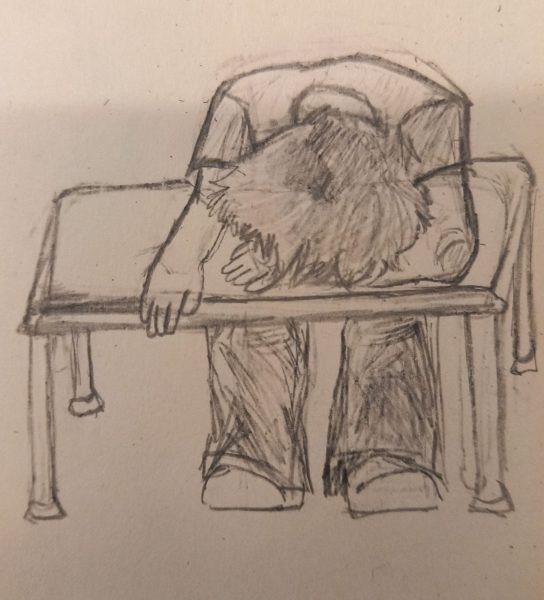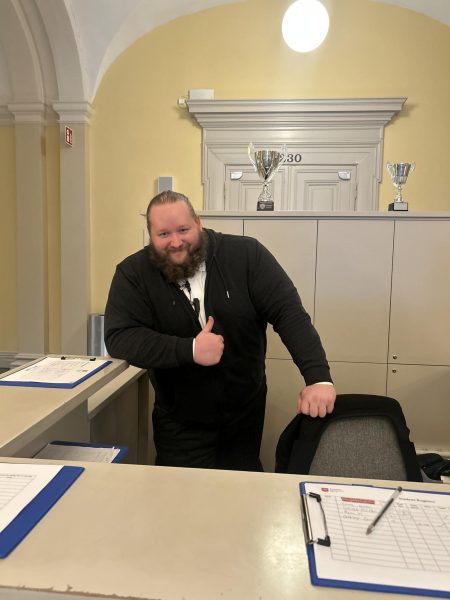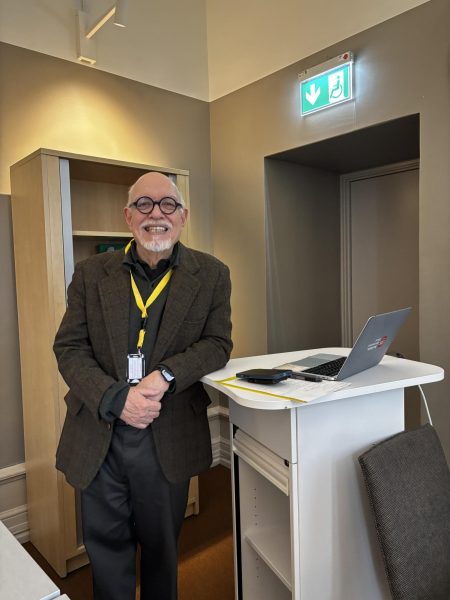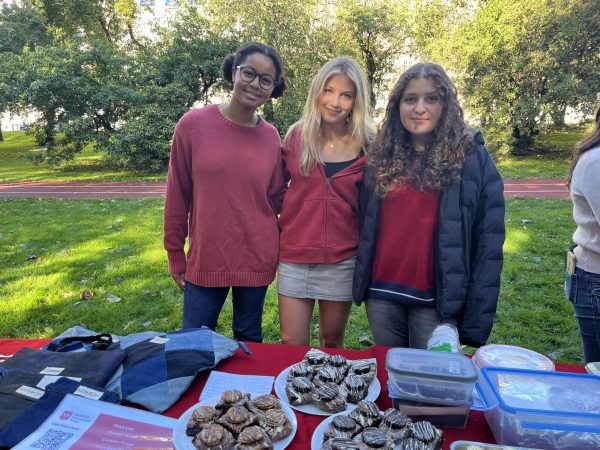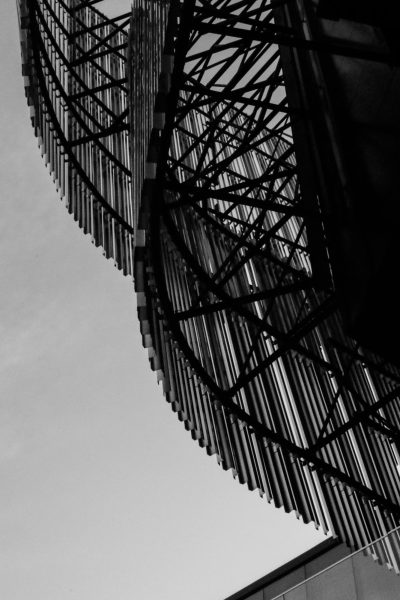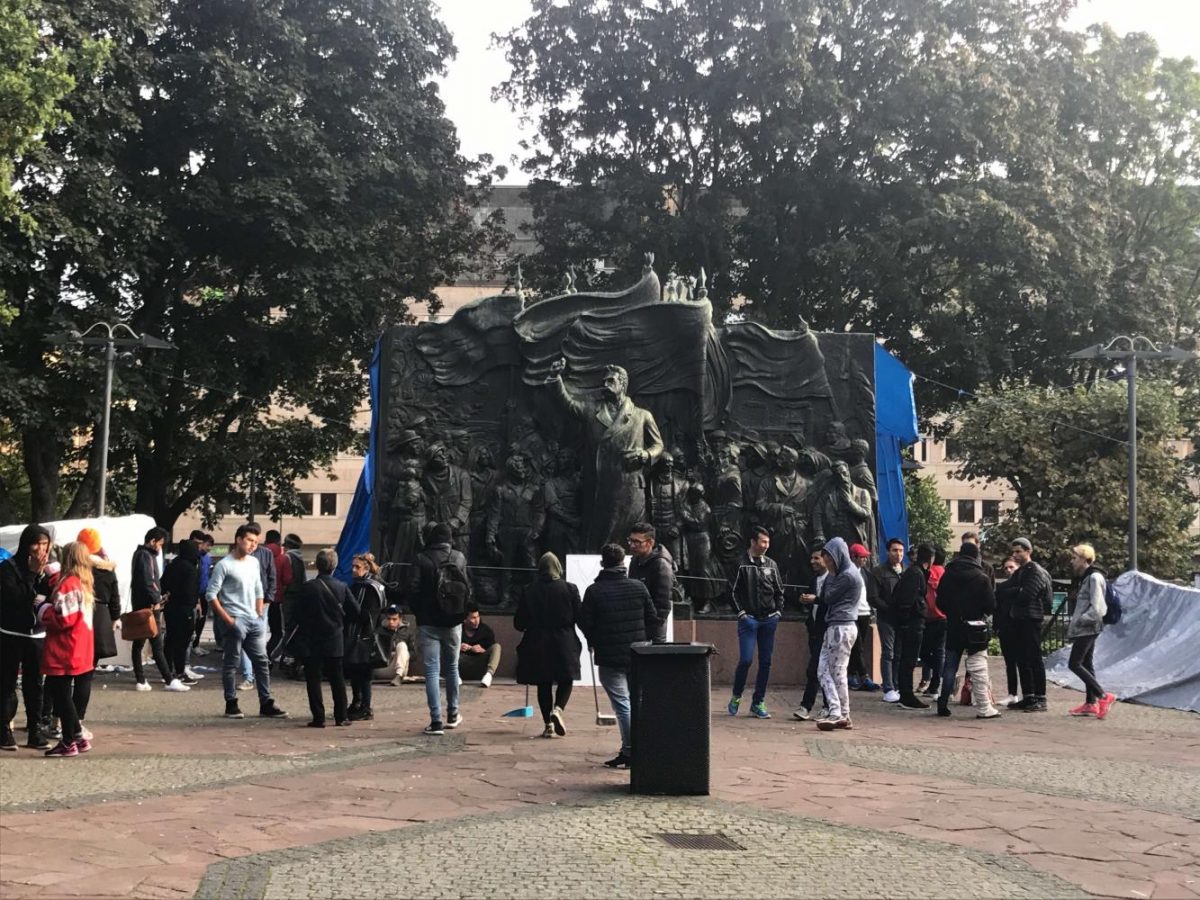Afghanistan is Not Safe For Anyone
At 15.30 on a Wednesday, 40 people are gathered on Norra Bantorget. Men and women in small groups of two to five people sit on benches, lie in tents, or stand around the great statue that represents the Social Democrats in Sweden. A Swedish lady, originally from Iran, speaks to us while we wait to speak to the leader of this protest against the Afghan deportation. She tells us of the role she plays in this demonstration by morally and financially supporting the people that gather here. She is one of the many Swedish supporters that help raise money for these protestors to spend on food and clothes.
For the past few months hundreds of people have gathered on Medborgarplatsen in Stockholm to protest the Migration Office’s decision to deport Afghans residing in Sweden. A few weeks ago this protest moved to Norra Bantorget in Norrmalm, but ceased sometime last week after 55 days. These Afghans spent 24 hours a day on Norra Bantorget for seven days a week, sleeping in Sweden’s nighttime 5°C temperatures.
The two founders of the organisation, Ung i Sverige, that lead this demonstration are Fatemeh Khavari and Mahmood Rezaie. Mahmood Rezaie came from Afghanistan to Sweden in 2015. He speaks fluent Swedish and has even developed his English within two short years. He has a home and a job and a phone just like every other Swede.
However, not like every other Swede, he recounts how he prepares himself every night to go to sleep under a vacant roof, tensely preparing for the possibility of racist attacks. Rezaie tells us how people will come out and yell racist comments at them like “go home,” “shut up,” and “disgusting.” To this Rezaie says, “I want to tell them that it’s not about which country you’re from but that you’re human. Everyone is just as worthy.” Rezaie admits it’s not easy to handle these racist attacks but ultimately says, “we learned from the heart to show respect and love”.
Norra Bantorget is encircled with tents and blankets where 100 people take residence day and night. Medborgarplatsen has previously hosted up to a 5000 people, Swedes and immigrants alike, demonstrating against the deportation of Afghans. They carry signs that say, “Stop the Deportations,” “Afghanistan is Not Safe for Anyone,” “What if it Was Your Child?” and “Everyone Deserves a Life in Safety”.
“We are a part of society. We need to have a [sympathetic] feeling and take care of each other,” said Rezaie. When unaccompanied refugees come to Sweden and are deported back to Afghanistan months later, these protesters exclaim the system is broken. In 2016, the EU declared that 80,000 rejected asylum seekers would be expelled to Afghanistan. One of the frightening issues with this that the majority being deported are from Iran, not Afghanistan. These expulsions place many of the refugees in a country they haven’t grown up in; a country where the road between the two main cities Kabul and Hazarajat has been titled “Death Road” because of its ostensibly recurring violence.
In light of the Nazi demonstration in Gothenburg and the violent Catalunya referendum, the question of nationalism and independence has come to light. It has become a question of divisions and the necessity of unity in every form.


